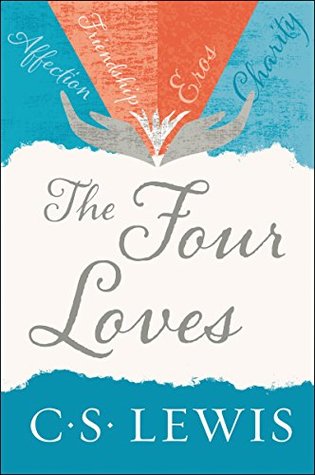More on this book
Community
Kindle Notes & Highlights
Divine Love is Gift-love. The Father gives all He is and has to the Son. The Son gives Himself back to the Father, and gives Himself to the world, and for the world to the Father, and thus gives the world (in Himself) back to the Father too.
We need others physically, emotionally, intellectually; we need them if we are to know anything, even ourselves.
Every Christian would agree that a man’s spiritual health is exactly proportional to his love for God.
Man approaches God most nearly when he is in one sense least like God.
What is near Him by likeness is never, by that fact alone, going to be any nearer. But nearness of approach is, by definition, increasing nearness. And whereas the likeness is given to us—and can be received with or without thanks, can be used or abused—the approach, however initiated and supported by Grace, is something we must do.
Every human love, at its height, has a tendency to claim for itself a divine authority.
We may give our human loves the unconditional allegiance which we owe only to God. Then they become gods: then they become demons. Then they will destroy us, and also destroy themselves. For natural loves that are allowed to become gods do not remain loves. They are still called so, but can become in fact complicated forms of hatred.
The human mind is generally far more eager to praise and dispraise than to describe and define.
And the Need-love, like the Need-pleasure, will not last longer than the need.
Our Need-love for God is in a different position because our need of Him can never end either in this world or in any other. But our awareness of it can, and then the Need-love dies too.
Need-love cries to God from our poverty; Gift-love longs to serve, or even to suffer for, God; Appreciative love says: ‘We give thanks to thee for thy great glory.’ Need-love says of a woman ‘I cannot live without her’; Gift-love longs to give her happiness, comfort, protection—if possible, wealth; Appreciative love gazes and holds its breath and is silent, rejoices that such a wonder should exist even if not for him, will not be wholly dejected by losing her, would rather have it so than never to have seen her at all.
If you take nature as a teacher she will teach you exactly the lessons you had already decided to learn; this is only another way of saying that nature does not teach.
The only imperative that nature utters is, ‘Look. Listen. Attend.’
Nature cannot satisfy the desires she arouses nor answer theological questions nor sanctify us. Our real journey to God involves constantly turning our backs on her; passing from the dawn-lit fields into some poky little church,
Let him be thrilled—preferably ‘out of school’—by the ‘Deeds that won the Empire’; but the less we mix this up with his ‘history lessons’ or mistake it for a serious analysis—worse still, a justification—of imperial policy, the better.
When we blame a man for being ‘a mere animal’, we mean not that he displays animal characteristics (we all do) but that he displays these, and only these, on occasions where the specifically human was demanded.
Those who cannot conceive Friendship as a substantive love but only as a disguise or elaboration of Eros betray the fact that they have never had a Friend.
The typical expression of opening Friendship would be something like, ‘What? You too? I thought I was the only one.’
In this kind of love, as Emerson said, Do you love me? means Do you see the same truth?—Or at least, ‘Do you care about the same truth?’
Friendship, I have said, is born at the moment when one man says to another ‘What! You too? I thought that no one but myself . . .’
Sexual desire, without Eros, wants it, the thing in itself; Eros wants the Beloved.
Christian writers (notably Milton) have sometimes spoken of the husband’s headship with a complacency to make the blood run cold. We must go back to our Bibles. The husband is the head of the wife just in so far as he is to her what Christ is to the Church. He is to love her as Christ loved the Church—read on—and gave his life for her (Eph. 5:25).
Nothing is falser than the idea that mockery is necessarily hostile. Until they have a baby to laugh at, lovers are always laughing at each other.
To love at all is to be vulnerable. Love anything, and your heart will certainly be wrung and possibly be broken. If you want to make sure of keeping it intact, you must give your heart to no one, not even to an animal. Wrap it carefully round with hobbies and little luxuries; avoid all entanglements; lock it up safe in the casket or coffin of your selfishness. But in that casket—safe, dark, motionless, airless—it will change. It will not be broken; it will become unbreakable, impenetrable, irredeemable.


